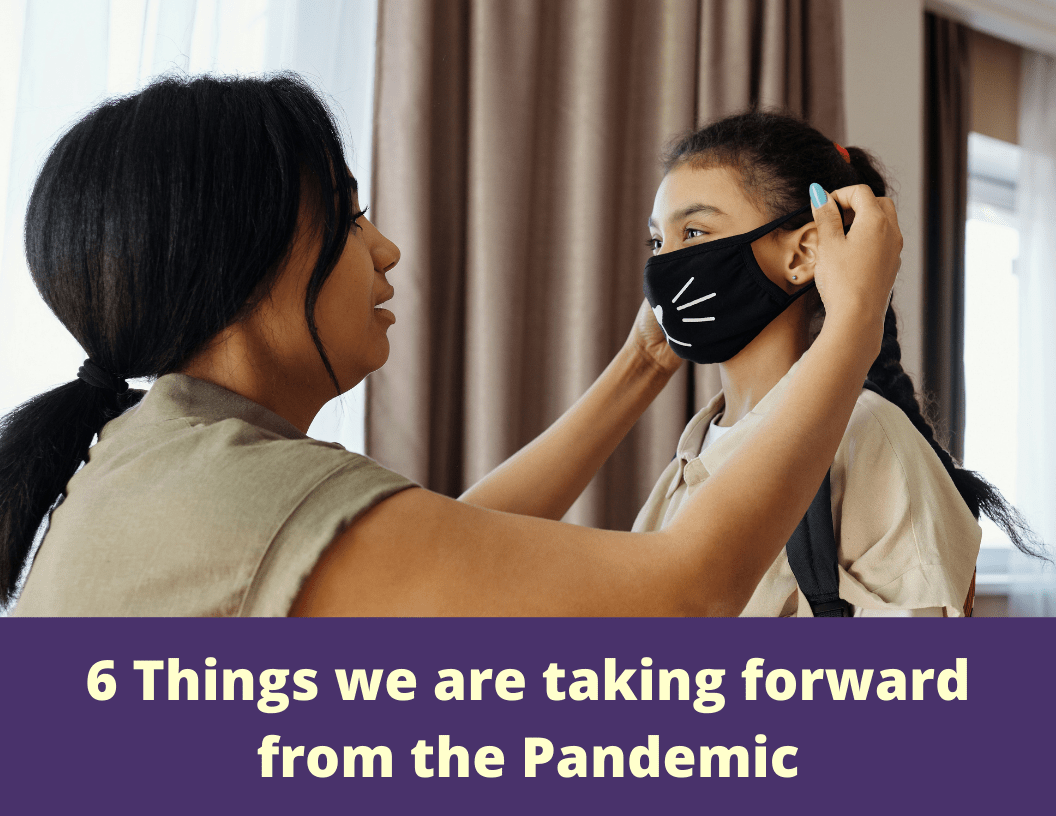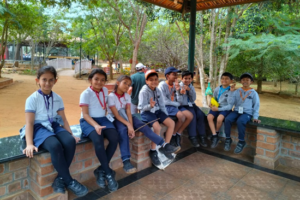BLOG
6 things we are taking forward from the pandemic

The pandemic period has been a rollercoaster; with schools and colleges shutting down, months of wasted academic year, students having to adapt to online classes and exams, every industry took a took a hit. Students specifically not only had a strenuous shift to adhere to but one which also turned out complicated.
For decades now teachers have maintained their pious relationship with batch after batch of students by interacting face to face, being able to guide and direct them through apt vigilance each day. A school is called the students second home as they learn, unlearn, explore, and discover socially and mentally in the institution until their adult years. To have to, so drastically, come to a halt was difficult for every student. They could no longer connect with their friends like they used to, learn new things every day, in simple terms their routine changed. Likewise, teachers struggled because they could not take classes and meet their students every day.
So, when the new norm of online classes began it was a sigh of relief for teachers, students and parents who were worried their children would miss out on nearly half a year’ worth of syllabus. That sigh of relief soon turned into a quizzical and confused outlook. Classes had been arranged but nothing seemed normal. Students were not able to interact directly, teachers had a tough time adapting to Teams/Meet, they also had to put in extra effort to keep the class entertained and hooked onto the subject. However, by taking repeated classes and hosting tests/exams online students and teachers have become used to the virtual classrooms. What seemed impossible was made possible to make sure children do not face any hindrance in their education, in a matter of months. But this shift took the world by storm. Although the novel corona virus was a sudden and forced installation in all our lives, why were we never prepared for this? Why was there never an alternative to offline classes? Students did have to invest a significant amount of time without regular school.
But now we open the forum to the question: what benefits, for the future, has the virus given us in the education industry?
Alternative Method: having online classes as an option for every student allows each student to be an equal part of the class even if they are unable to attend offline classes. Students maybe stuck due to a natural calamity or other unforeseen situations that cause a hindrance in their lives. The availability of online classes ensures that students can continue their education without having to worry about losing attendance or missing out on lectures.
Using the Digital Forum: students are highly charged by technology and browsing platforms today, that answer their questions in a matter of seconds. Having the convenience to share screen and present to students the various connections to the piece you are teaching is an added bonus. A teacher changes the environment of the class if he/she explains the holocaust and then proceeds to show them Roberto Benigni’s Life is Beautiful (1997). Likewise, when a teacher is questioned by a student on a subject, they may not entirely be sure of, the teacher is able to look it up and clear the child’s doubt. Instant doubt clearance keeps the student in loop and allows them to ask more questions. The accessibility of the internet in a positive connotation is something that was discouraged in traditional classroom. Now, we see how technology and digitization has transformed into a boon for every student and teacher.
Retention: the availability of online material shared at the beginning of the year means that students are able to revisit the course materials at any point and refresh their memories. Incorporating this as traditional/blended form of classes open is a necessity.
Time Management: students in school usually have back-to-back classes that are 40-50 mins long each, for 7-8 hours straight with only a small break in between. Online classes have taught us that giving students a considerable amount of break between classes allows them to focus well and learn better. Students also learn to manage their time effectively without having it forced onto them. They learn to be more independent and face consequences to their own actions.
Motivation: children must be motivated to a certain extent. But it is imperative for them to be self-motivated. For years our education system has been such that students are regularly cramped with assignments towards the end of the year and forced to finish them according to deadline. Through online classes we have learned that the distribution of classes, exams and assignments must be linear. They should be able to find ample time to finish their projects and submit them. Of course, teachers must create negative reinforcement like deducting 1 mark every hour after submission time closes. By practicing this the child will understand the goal and work accordingly.
Learning Experiences: just as students and teachers found a way to make education remain as the priority through online learning the education industry will now be more alert to take up all new learning experiences and methods. This is to ensure that they will be able to provide for even in difficult times that may hit us in the near future. It should be included in their regular schedule to make sure they are aware of what is new and what is trending. Unlike when the 2020 pandemic hit us and we took months trying to unlearn and learn new methods to adapt.
Our frustration, anger and emotions are completely justified to the pandemic. However, if we must, we should take the good things we learned because of it. From giving, those that we love, time to learning/unlearning and adapting. This pandemic has taught us a lot and we must continue to thrive using the learning by carrying it forward with us.
The lessons from the pandemic have reshaped how we value learning, adaptability, and resilience. These learnings align with life skills education and innovative teaching methods. Such adaptive thinking is cultivated in forward-thinking institutions. That’s why New Horizon Gurukul is one of the most respected cbse schools in bangalore and admired among schools in bangalore.




